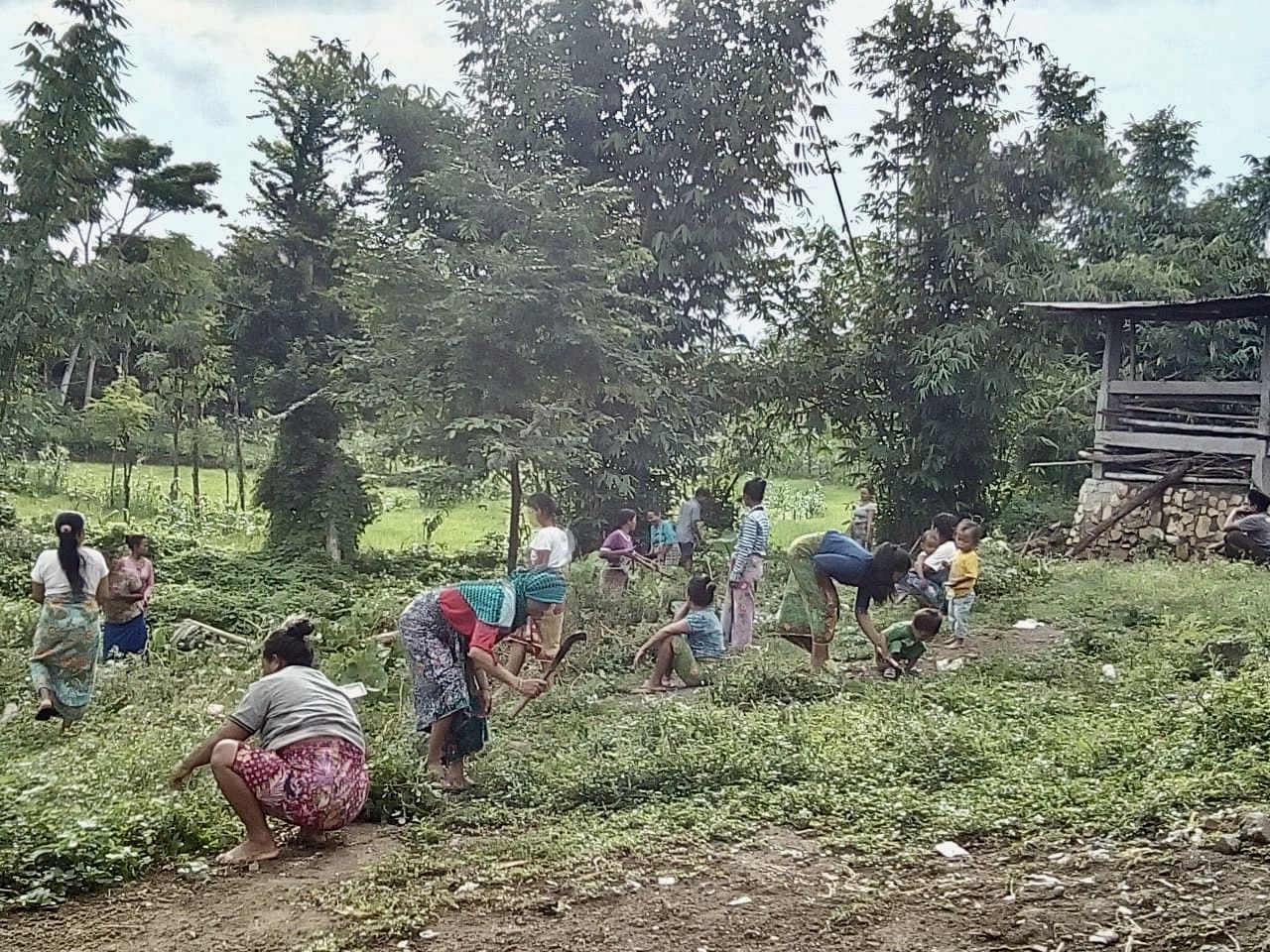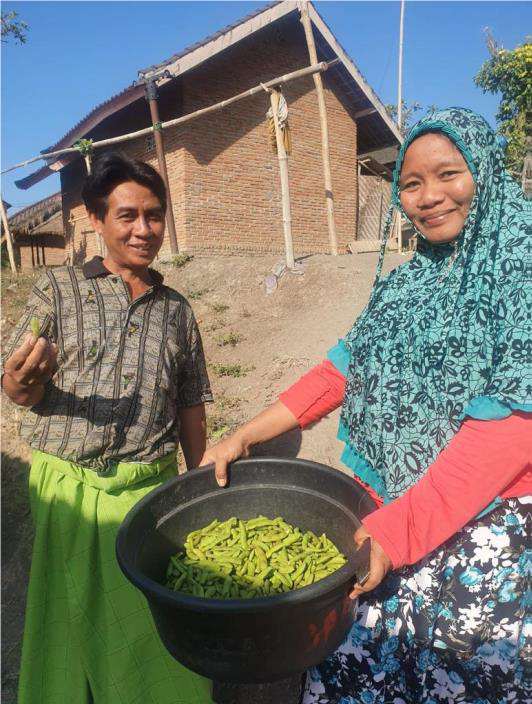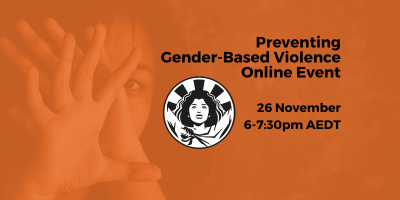Read a recent report from Isla Winarto, Project Director on the progress on the Indonesia Earthquake Recovery through Water, Shelter and Capacity Building Project in Rembitan, Lombok.
Soroptimist International South West Pacific
Read more from the SI Jakarta (SIJ) Project team for updates on the Lombok, Indonesia - Earthquake Recovery through Water, Shelter and Capacity Building.

We are excited to invite you to an impactful online event: Preventing Gender-Based Violence. Mark your calendars for 26 November 2024 6pm AEDT, and be ready to engage in critical discussions that can drive change in our communities.
This event features an amazing lineup of guest speakers who are renowned experts and advocates in the field of gender-based violence prevention. They will share their insights, strategies, and experiences, equipping you with the tools and knowledge necessary to make a difference.
Tickets are $40 for non-members and $35 for members.
Meet our Speakers
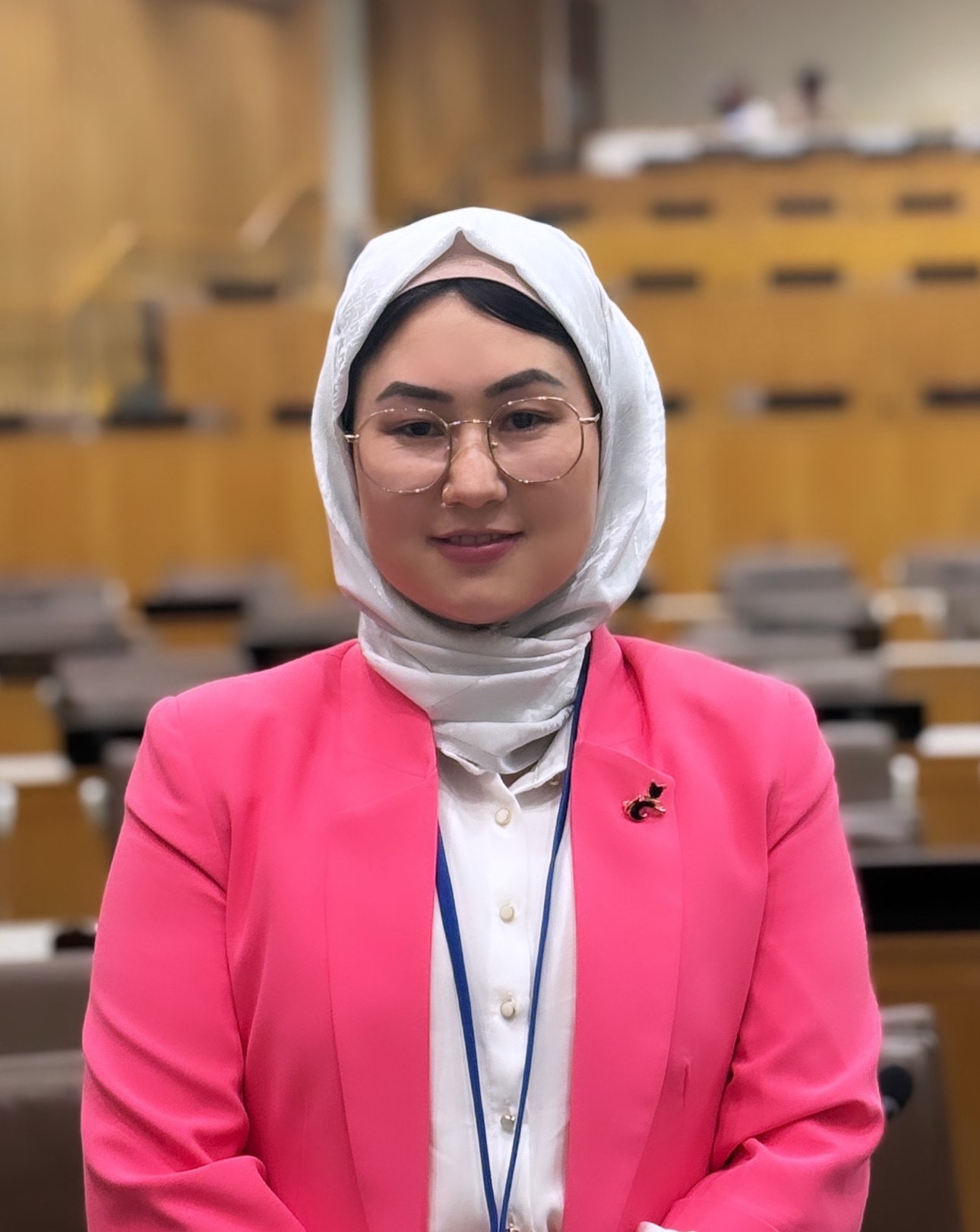
Helena Hassani
Executive Director, Boland Parwaz
She is a human rights advocate and campaigner for the prevention of child and forced marriage and family violence. Helena is the recipient of the Echoing Green Fellowship 2024 working towards ending child and forced marriage in Australia and globally.
Helena was a delegate to the United Nations in Geneva for the Annual Tripartite Consultation on Resettlement in 2023. She has also been an NGO delegate to the United National recently in March 2024 in New York for the Consultation on the Status of Women 68th Conference. She is a silver medal winner of the Women Changing the World Award 2024 for the Cultural Diversity and Inclusion Impact category. Helena has significant experience in family violence and modern slavery particularly forced marriage.
Currently Helena is the Director of Boland Parwaz PTY LTD which is working towards a future without child and forced marriage. She is one the multilingual female facilitators of Men’s Behaviour Change Program for Intouch Multicultural Centre Against Family Violence in Victoria. Helena is a research assistant for the Anti-Slavery Australia at the University of Technology Sydney and the Modern Slavery Lead at the Mercy Foundation.
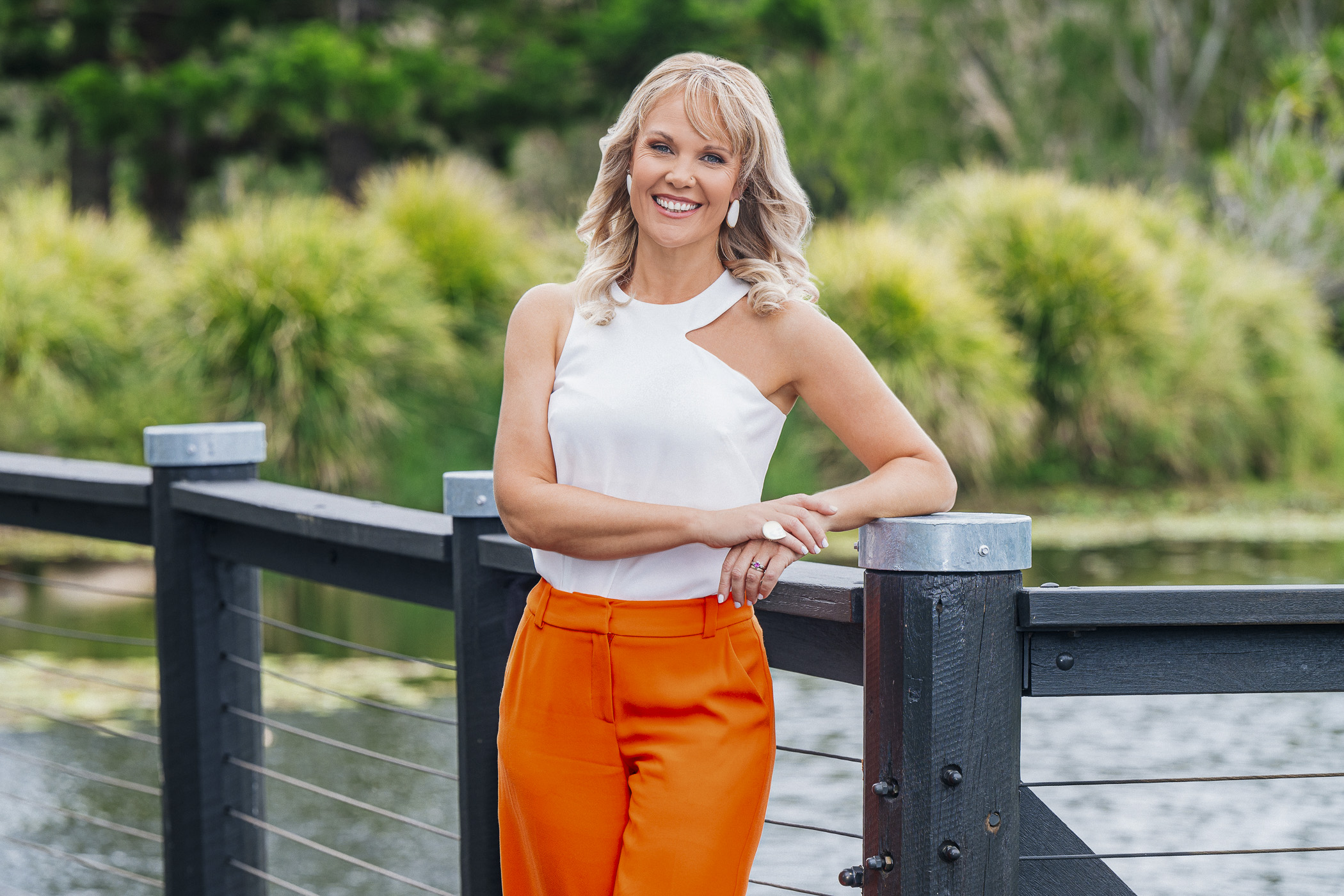
Lucy Gregory
CEO, Domestic Violence Prevention Centre Gold Coast
Lucy Gregory is the CEO of the Domestic Violence Prevention Centre in the Gold Coast. (DVPC GC) DVPC GC provides specialist domestic and family violence service and support to adults, children and young people who have experienced DFV and to those who use violence. DVPC also leads the Gold Coast Domestic Violence integrated Response, which has been in operation for over 25 years.
Lucy has had the honour of working in the domestic and family violence space for almost 20 years, including in the ACT, Victoria and Queensland in both direct client service delivery and program and policy development. Lucy previously worked for Family Safety Victoria and was responsible for the practice and operational guidance for the state-wide The Orange Door Network in Victoria. Highlights of Lucy’s career include being Senior Advisor to Rosie Batty, supporting the establishment of the Victim Survivor Advisory Council in Victoria and working on the Royal Commission into Institutional Responses to Child Sexual Abuse. Lucy is a qualified lawyer and sociologist and is committed to ending violence against women and girls globally.
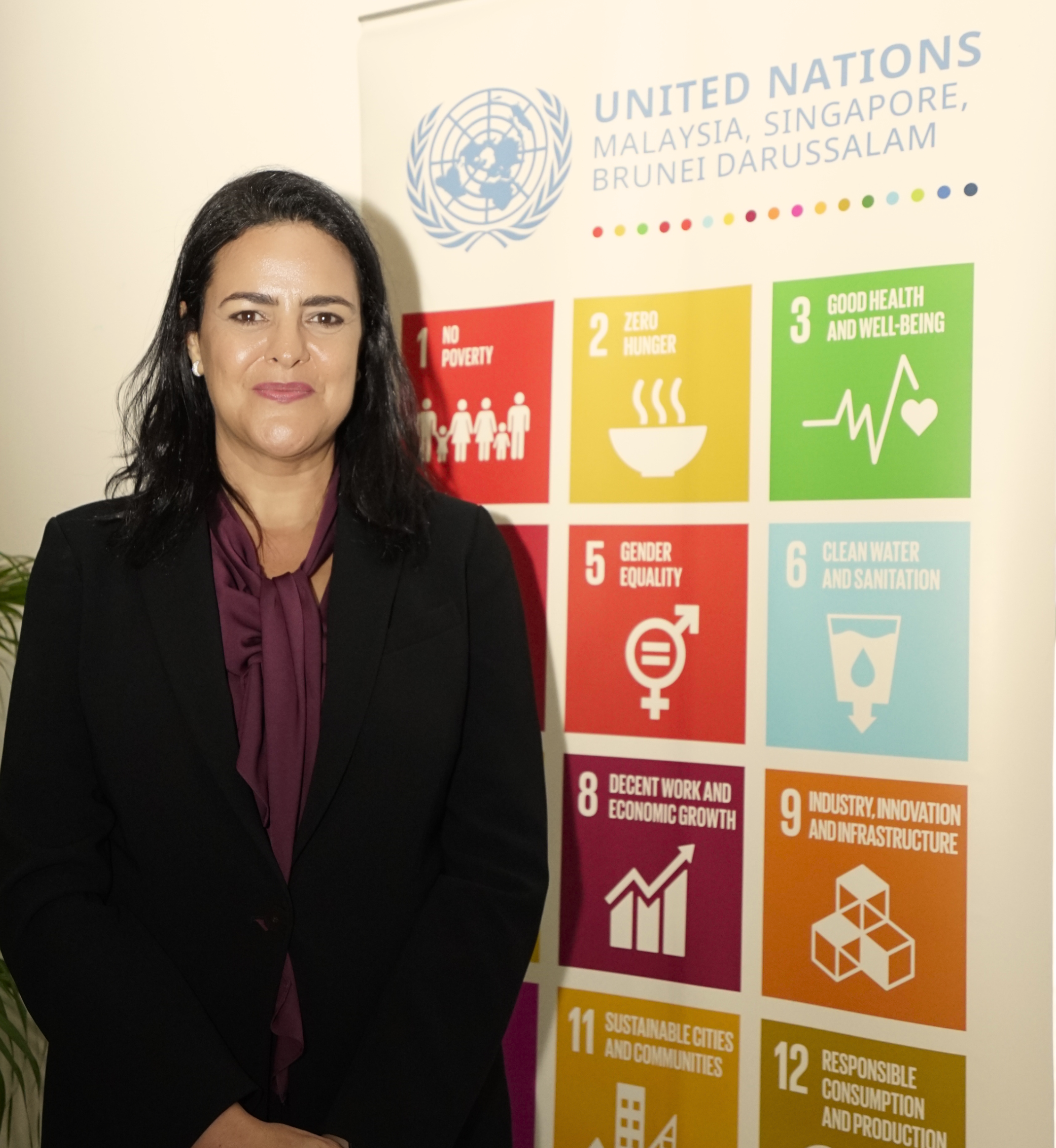
Karima El Korri
Resident Coordinator Malaysia, United Nations
Ms. Karima El Korri is the Resident Coordinator in Malaysia, Singapore and Brunei Darussalam. She has more than 20 years of international development experience within the United Nations and externally. Within the Organization, she most recently led the 2030 Agenda division at the United Nations Economic and Social Commission for Western Asia (ESCWA), a role she assumed after managing the population and development portfolio and pioneering the work of the Commission on international migration, population ageing, and youth empowerment.
Before that, she served as a regional advisor on governance and project coordinator at the United Nations Development Programme (UNDP). Prior to joining the United Nations, Ms. El Korri worked in Morocco as a lecturer at the Al-Akhawayn University as well as with a think-tank engaging with government, civil society, the private sector, academia, youth, and international organizations on development issues in the country.
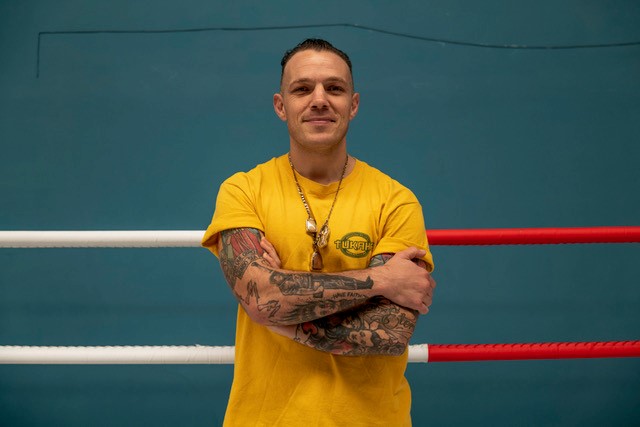
Richie Hardcore
Activist and Educator - Family and Sexual Violence Prevention
Richie Hardcore is a public speaker, consultant, educator and advocate. His work discusses masculinity, mental health, pornography, sex and consent and how we can end sexual and domestic violence.
He has a Masters's degree in Sociology, is a White Ribbon New Zealand ambassador, and is part of the New Zealand Ministry of Social Development’s ‘Change is Possible’ anti-domestic violence campaign. His work has been featured regularly in the media and was recently part of the SBS Australia documentary series “Asking For It”. He was a multiple New Zealand champion in Muay Thai, and now he has retired from fighting is a coach and trainer. Through his charitable trust he uses Muay Thai and Kickboxing as part of a mentoring program for people who have left the criminal justice system, are in alternative education or alcohol and drug rehabilitation.
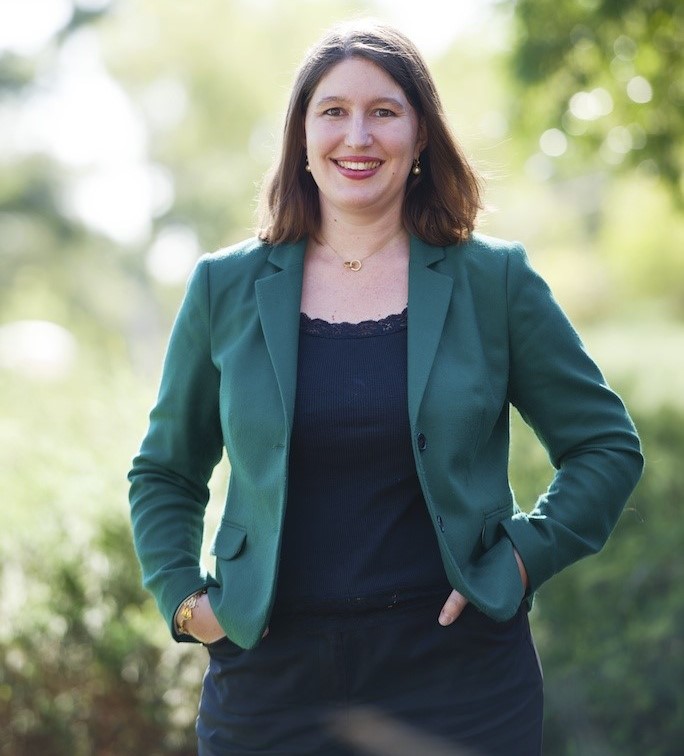
Lorraine Finlay
Commissioner, Australian Human Rights Commission
Lorraine Finlay is the Human Rights Commissioner at the Australian Human Rights Commission. In this role Lorraine leads the work of the Commission in areas including modern slavery, asylum seekers and refugees, business & human rights, and technology & human rights.
Prior to joining the Commission, Lorraine has worked as a lawyer and academic specializing in human rights and public law. She holds a dual Masters in Law from New York University and the National University of Singapore, where she studied as a Singapura Scholar. Her past roles have included working as the Senior Human Trafficking Specialist with the Australian Mission to ASEAN, an academic at Murdoch University, and a State Prosecutor with the WA DPP.
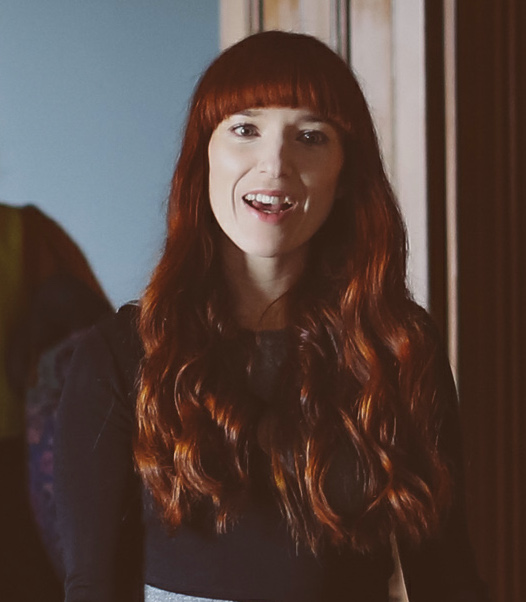
Naomi Pfitzner
Deputy Director, Monash Gender and Family Violence Prevention Centre
Dr Naomi Pfitzner is Deputy Director of the Monash Gender and Family Violence Prevention Centre and a Lecturer in Criminology at Monash University.
Naomi is also a Associate Investigator on an ARC Centre of Excellence for the Elimination of Violence Against Women awarded in 2023. Naomi has extensive research experience in family violence prevention and response. She conducts research in the area of family violence, gender, family studies, social policy and law. Her work has a key focus on the primary prevention of family violence, respectful relationships education and gender equality.
We encourage your club to purchase tickets for this essential event and host an impactful gathering that brings all members together. Additionally, individual members are welcome to buy tickets on their own to enjoy this enlightening experience independently. By joining this collective effort or attending individually, you can foster meaningful discussions and strengthen your commitment to preventing gender-based violence.
Don’t miss out—buy your tickets now to ensure your place and make a difference together!
Lifelong Learning Education Day 2025
Programme Convenor Dr Donnell Davis discusses Life Long Learing in this blog on Education Day 2025
pdf To download a pdf version of this story and additional informaiton CLICK HERE (1.05 MB)
UN Education Day on 24 January is celebrated every year by Soroptimist International South East Asia Pacific, and this year our theme is Lifelong Learning. Education is a strong pillar of our global mandate for Soroptimist International to educate, empower and enable, and operationally a specific objective for our South East Asia Pacific federation. The sustainable development goals include: SDG 4 for formal education, SDG 8 for decent work, and others.
The concept of lifelong learning has evolved since the 1980s and in summary, is defined simply as ‘the self-motivated pursuit of formal or informal knowledge and skills for personal and professional development’. It follows that gaining those attributes may be found anywhere from early education, primary or secondary formal schooling, life-skills, vocational or community education. Professional bodies provide continuing professional and personal development catering for their membership. Furthermore, scope may include universities of the third age for retired people. This scope is one’s journey of choice into areas of interest and expertise. During our evolving working lives, we may experience as many as seven professions with the hunger for intellectual stimulation and for re-inventing oneself as a requirement for resilience. (McKenzie Research: 2024)
In Asia Pacific, the progress towards Sustainable Development Goals is monitored annually, illustrating regression or stagnation in most targets across the board since covid. (UNESCAP 2024) In SISEAP, we concentrate on 13 countries that fall into 2 sub-regions – the Pacific and South East Asia. In November 2024, UNESCAP proposed a future for education to be inclusive, green and digital, and fundedUN Education Day on 24 January is celebrated every year by Soroptimist International South East Asia Pacific, and this year our theme is Lifelong Learning. Education is a strong pillar of our global mandate for Soroptimist International to educate, empower and enable, and operationally a specific objective for our South East Asia Pacific federation. The sustainable development goals include: SDG 4 for formal education, SDG 8 for decent work, and others.
The concept of lifelong learning has evolved since the 1980s and in summary, is defined simply as ‘the self-motivated pursuit of formal or informal knowledge and skills for personal and professional development’. It follows that gaining those attributes may be found anywhere from early education, primary or secondary formal schooling, life-skills, vocational or community education. Professional bodies provide continuing professional and personal development catering for their membership. Furthermore, scope may include universities of the third age for retired people. This scope is one’s journey of choice into areas of interest and expertise. During our evolving working lives, we may experience as many as seven professions with the hunger for intellectual stimulation and for re-inventing oneself as a requirement for resilience. (McKenzie Research: 2024)
In Asia Pacific, the progress towards Sustainable Development Goals is monitored annually, illustrating regression or stagnation in most targets across the board since covid. (UNESCAP 2024) In SISEAP, we concentrate on 13 countries that fall into 2 sub-regions – the Pacific and South East Asia. In November 2024, UNESCAP proposed a future for education to be inclusive, green and digital, and funded . https://www.unescap.org/kp/2024/charting-new-paths-gender-equality-and-empowerment-asia-pacific-regional-report-beijing30
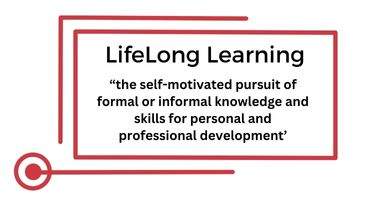
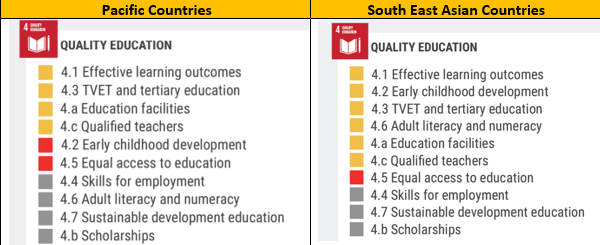
Even access to basic primary education is regressing for all children and more so for girls. (UNESCAP: B+30 review 2024). So, the opportunities for children, girls and women have an unstable foundation upon which to build resilience in life.
Across our countries there is significant variability from free education for all 4-year-olds in rich countries with government-supported systems, in stark comparison against lower developmental countries that are plagued with conflict or corruption where there is diminished commitment for basic human rights, economic stability, and resilience.
However, when we think of lifelong learning, we think of older girls and women re-entering education after early marriage, pregnancy and raising a family. Others escaping disasters or conflict need to learn different life skills, especially physical and mental health management for themselves and others. For entrepreneurial women, they seek economic empowerment skills for running small business, managing growth, navigating markets, excelling in innovation and embracing technology. These women demonstrate skills in leapfrogging in industry measured under SDG 9 – the only target to improve during covid in Asia Pacific.
When a child is educated the community benefits, when a community is educated the country benefits (GDP), when a country is educated the world benefits (SDGs).
SEAP Delivers in many ways
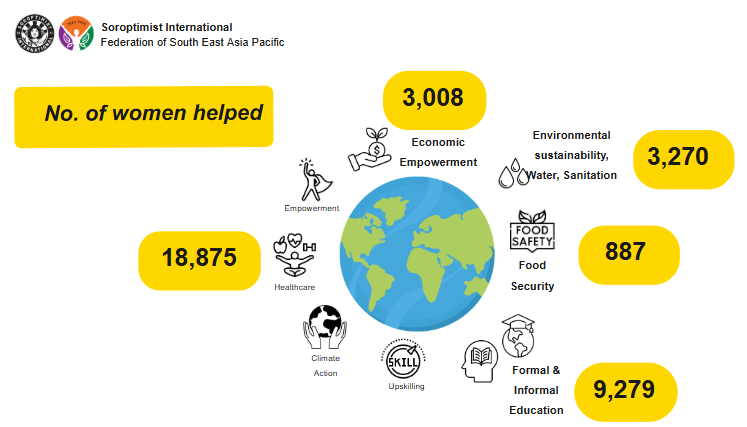
SISEAP reported Education impact for 2024
SISEAP provides donations, scholarships, bursaries, voluntary teaching hours, facilitating care centres, schools and safe learning environments, specific skills facilitation, and advocacy enabling governments to advance the opportunity and delivery of better educational outcomes. The following includes samples from our 8 objectives.
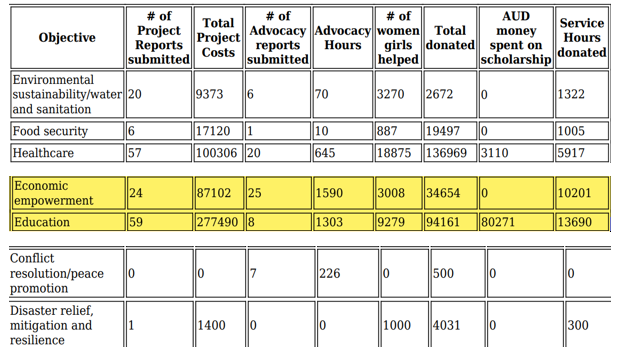
In SISEAP, many projects support vulnerable children, adolescents and women. Other ways include:
- scholarships, bursaries, to pursue educational outcomes
- donations for educational supplies, equipment, uniforms, breakfast and meals onsite
donations of technology/ access and connectivity - formal training for entrepreneurship education in life skills (if children were traded at a young age and adopted by the justice system)
- second chance education for young mothers re-education of widows or women escaping violence
- customised training for migrant and refugee women and girls, families
- re-training for older women who re-enter the workforce
- broad opportunities for green and digital education (STEM, Climate resilience)
- opportunities for older women to engage in society, paid work, academia, and community eldership.
-
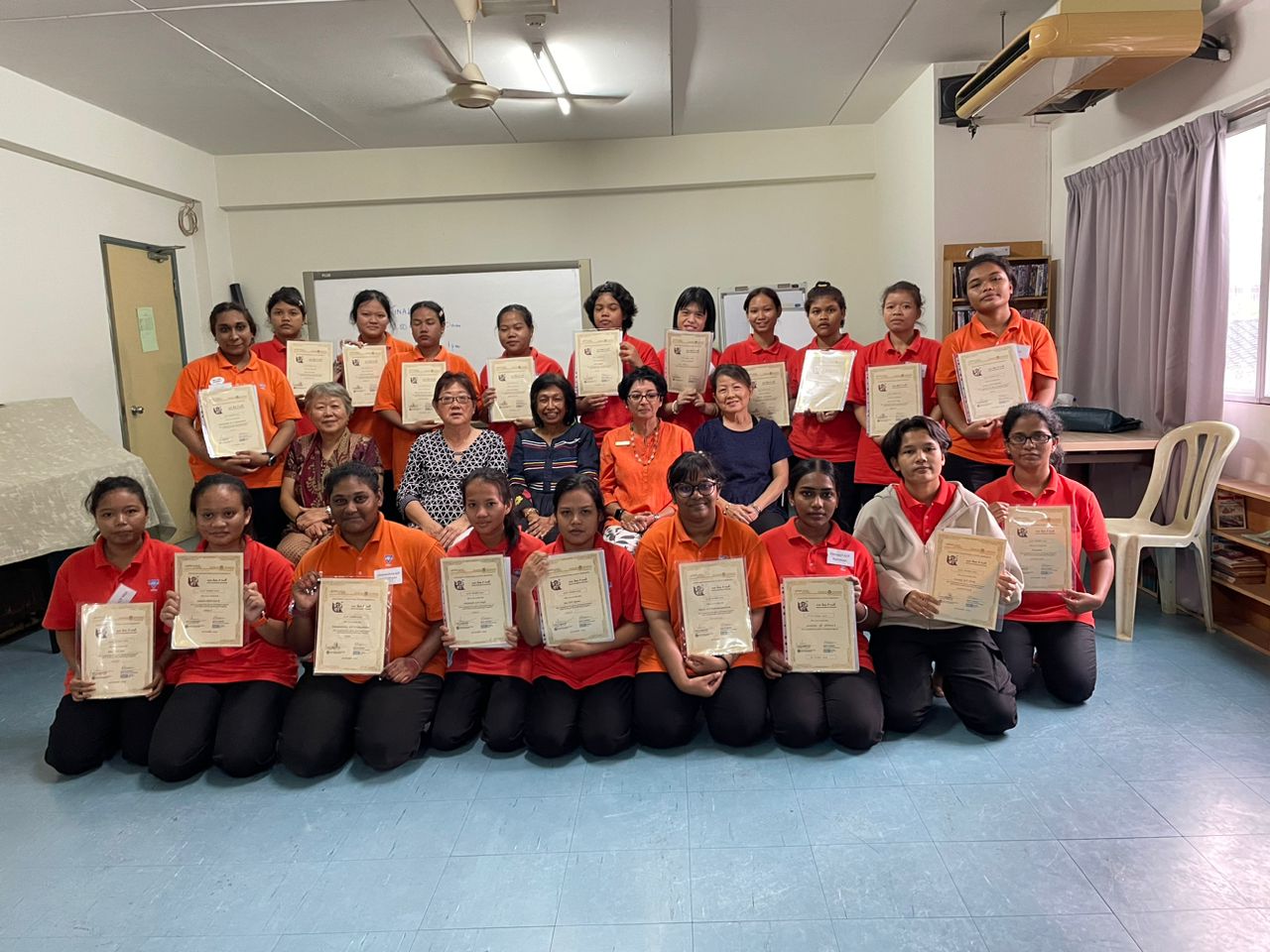
Life Skills - SI Damansara
-
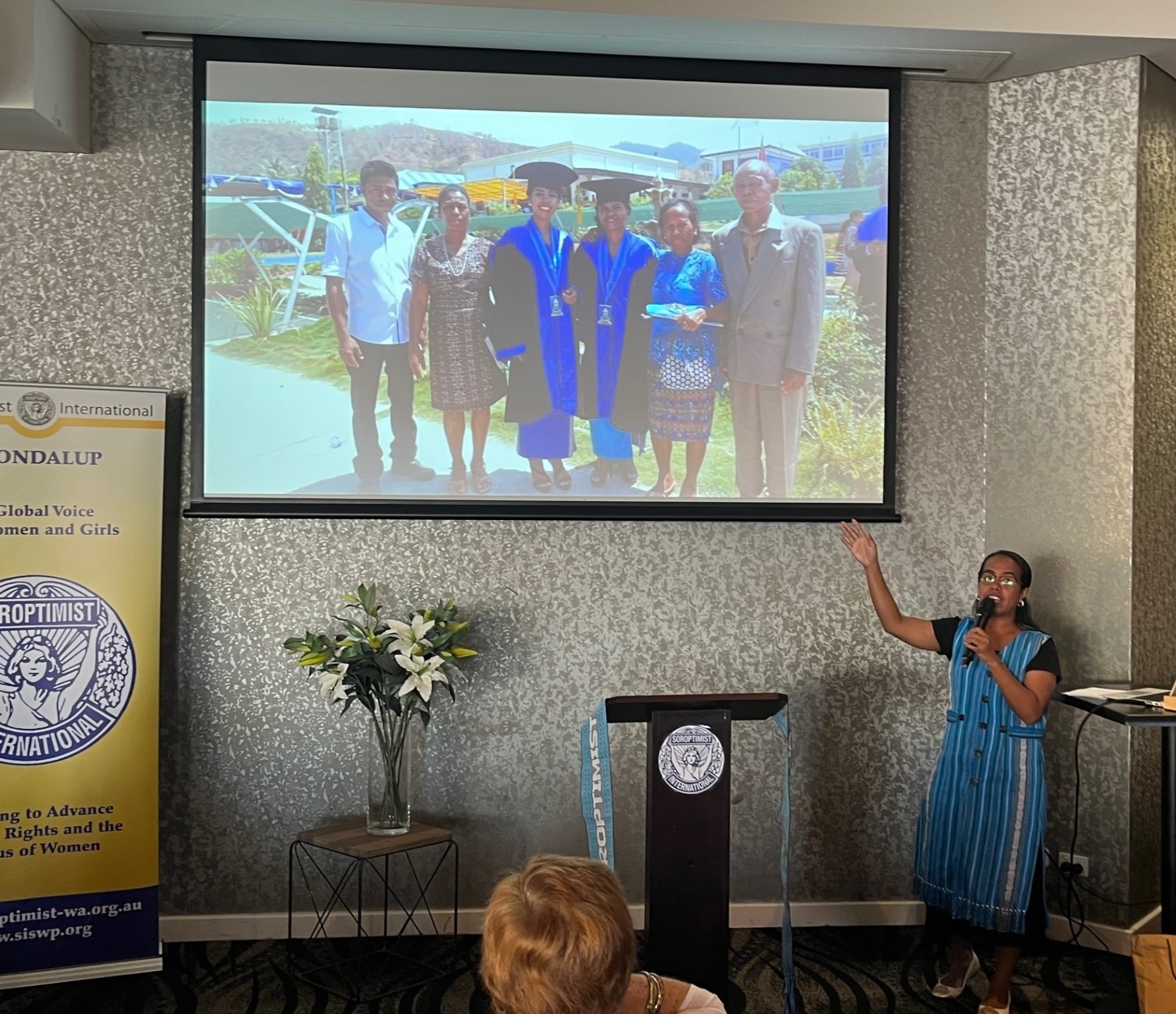
Upskilling Scholarships SI Joondalup
-
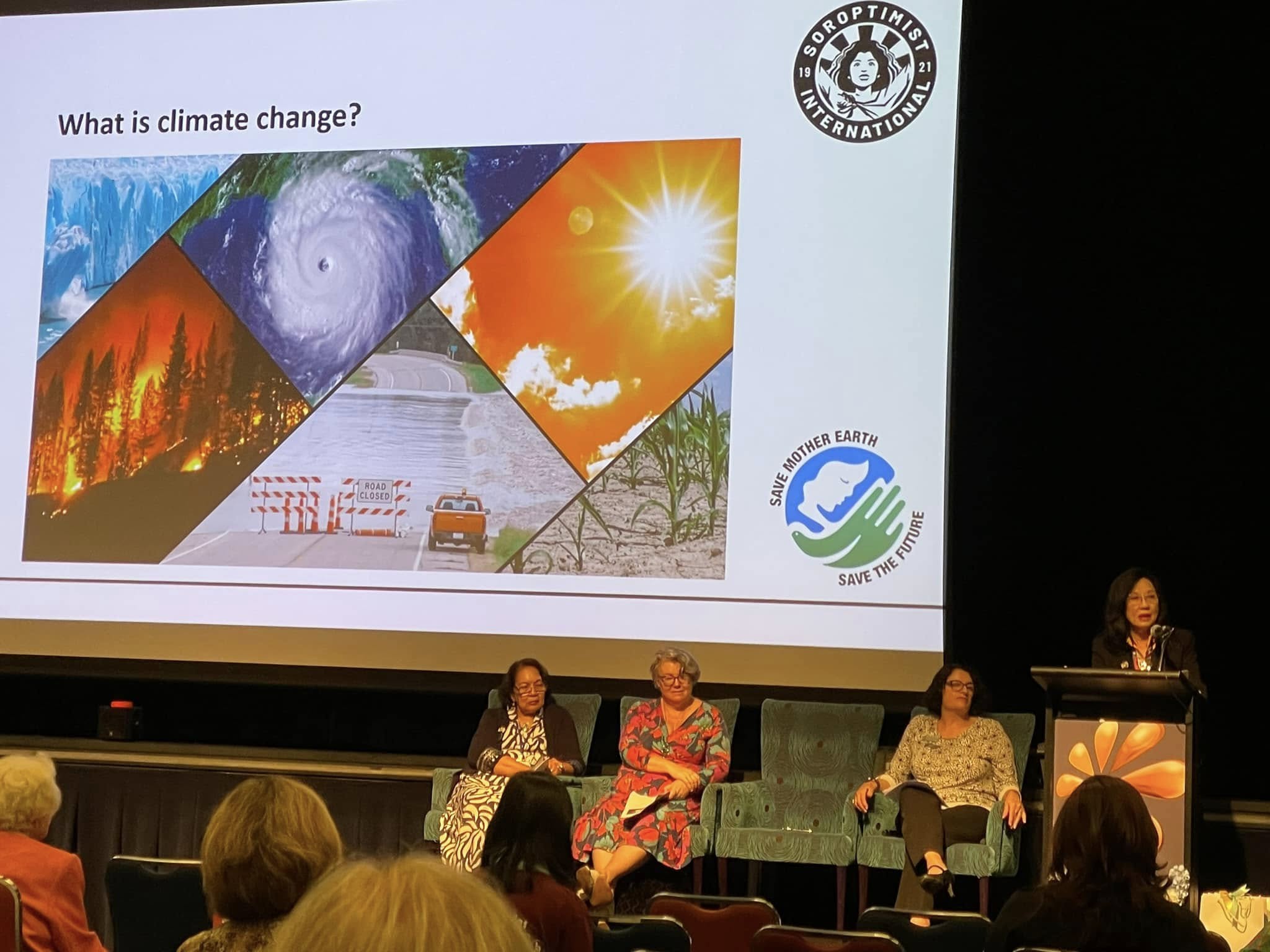
Climate Change Education
-
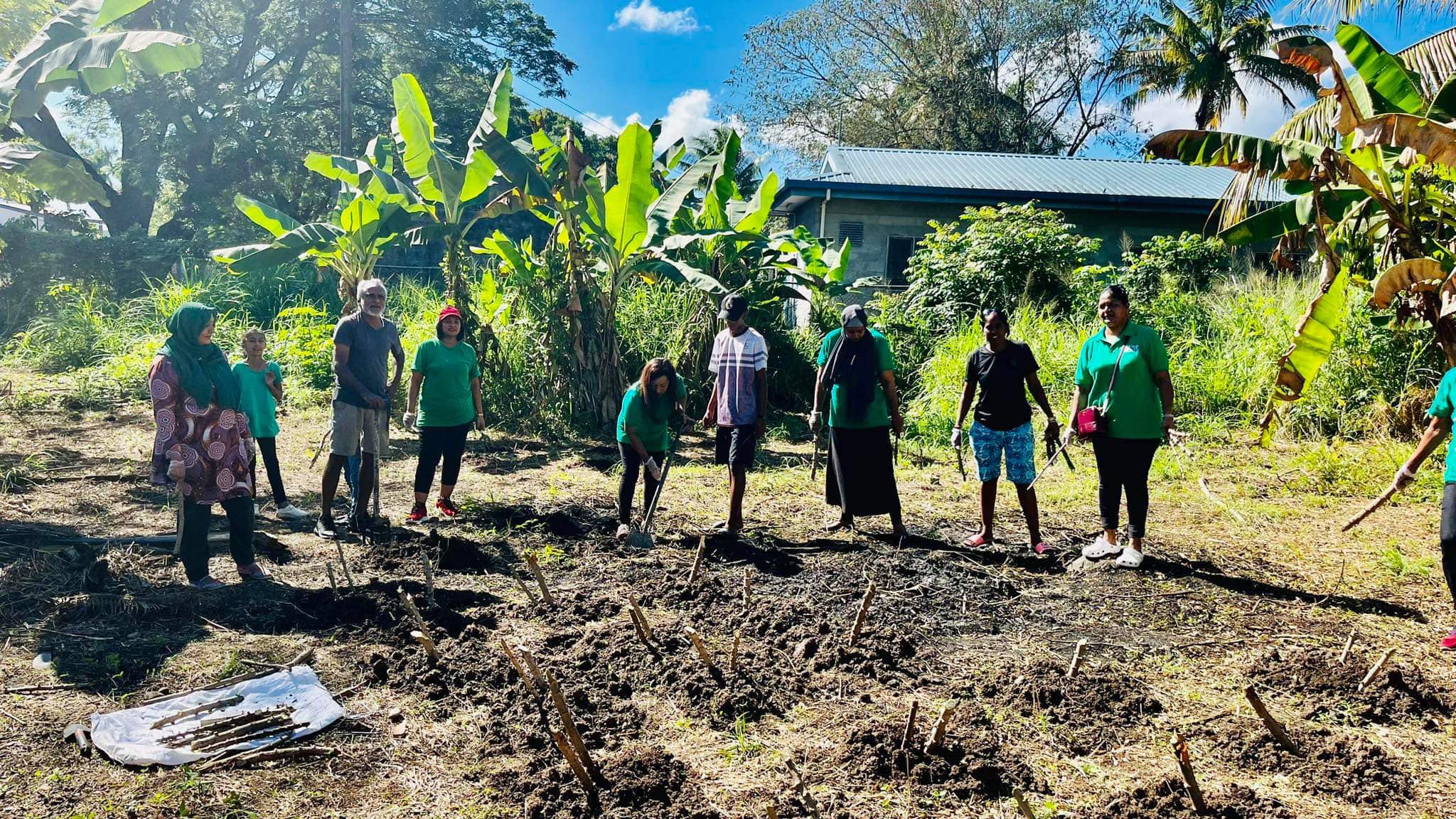
Foot Security Training SI Lautoka
-
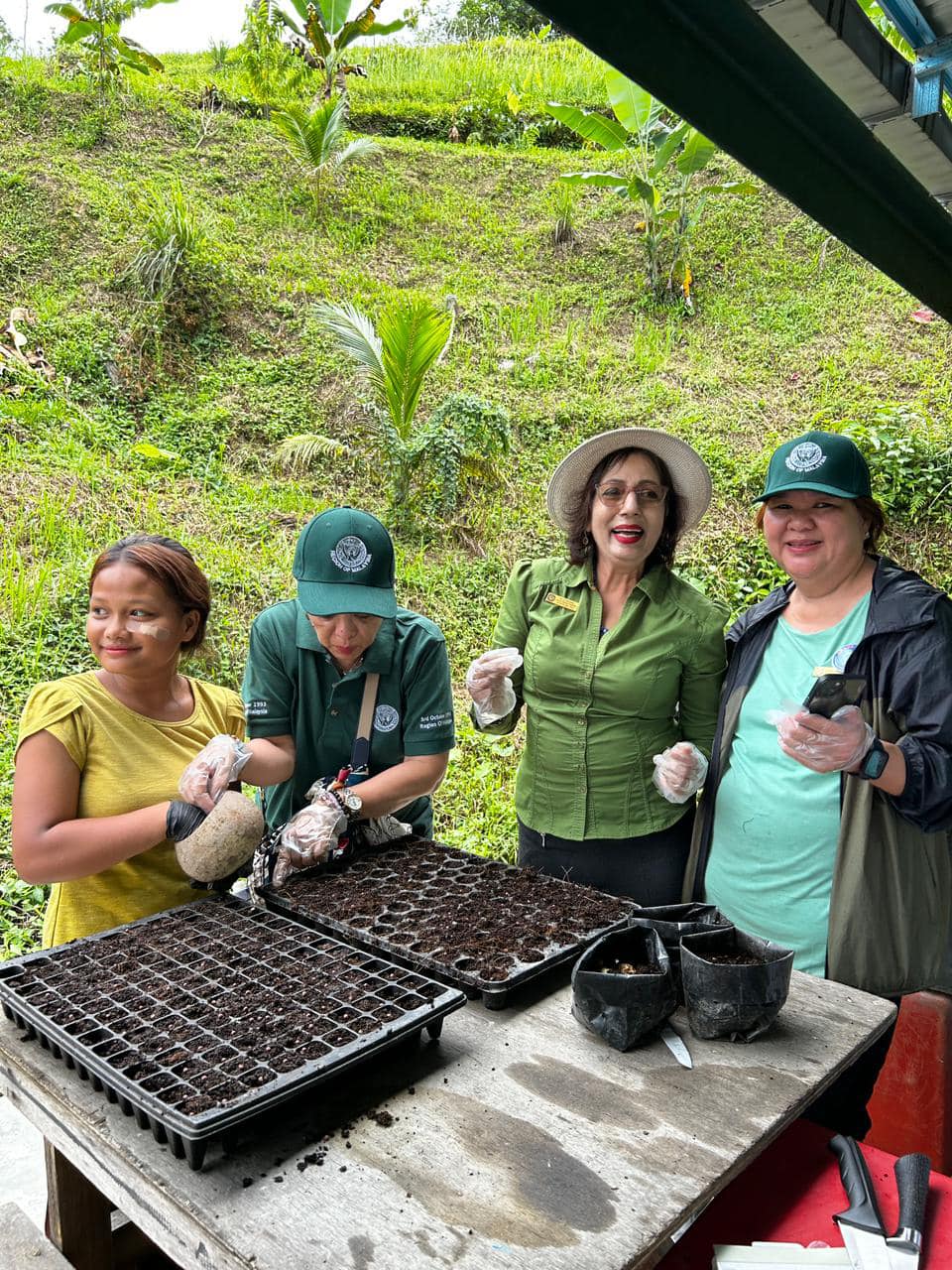
Food Security Training Region of Malaysia
-
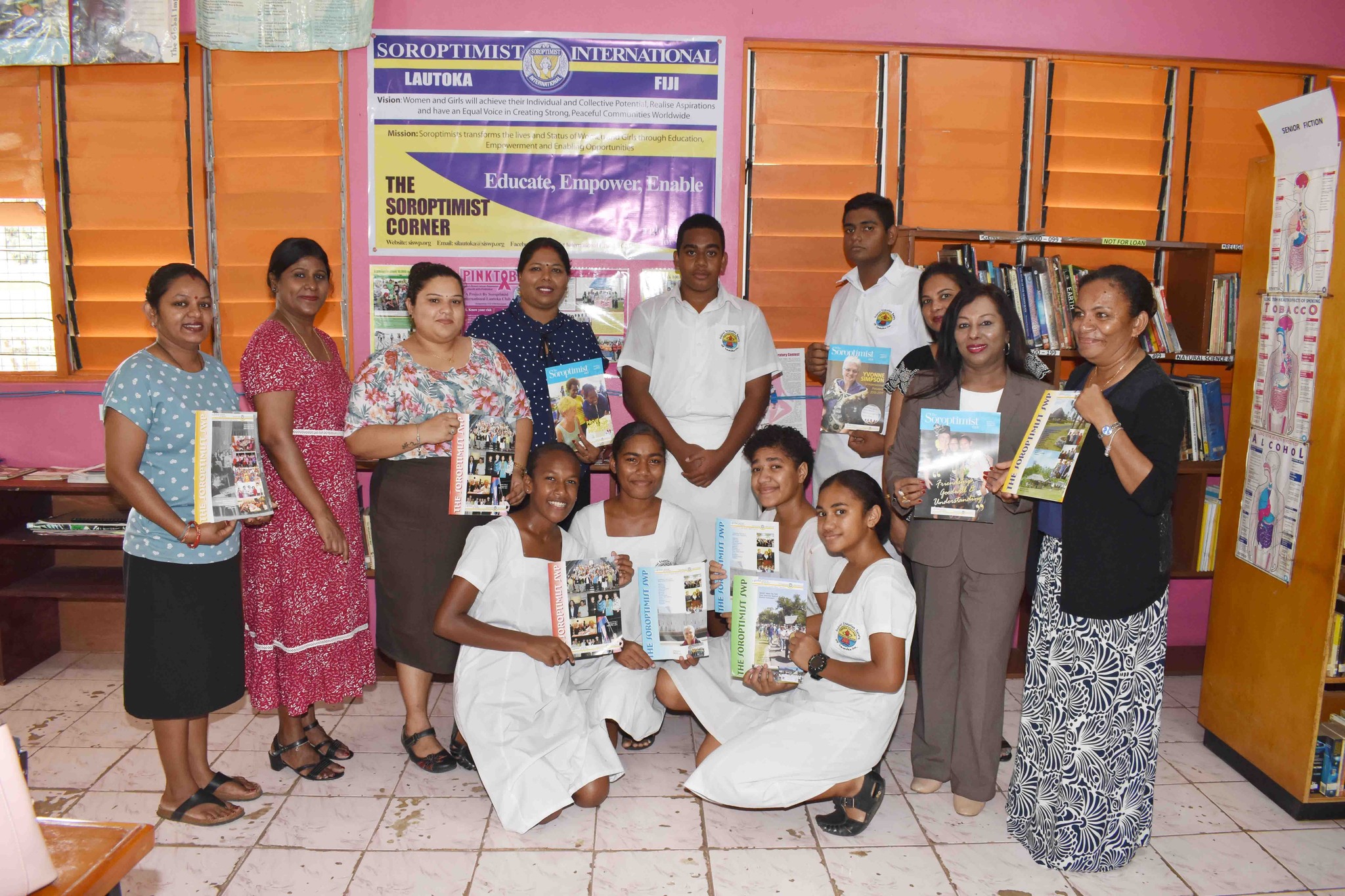
Literacy, Library supplies SI Lautoka
-
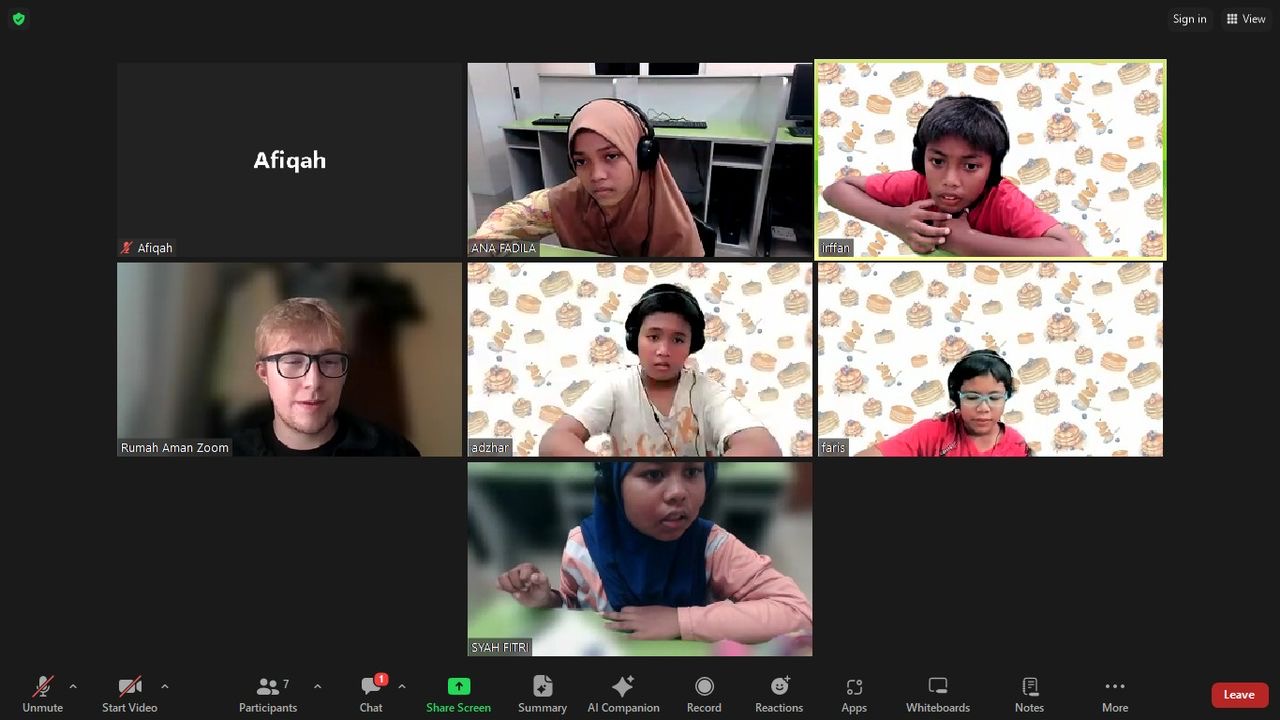
Literacy Leanning Conversational English SI Damansara
-

Healthy Relationships Region of Malaysia
-
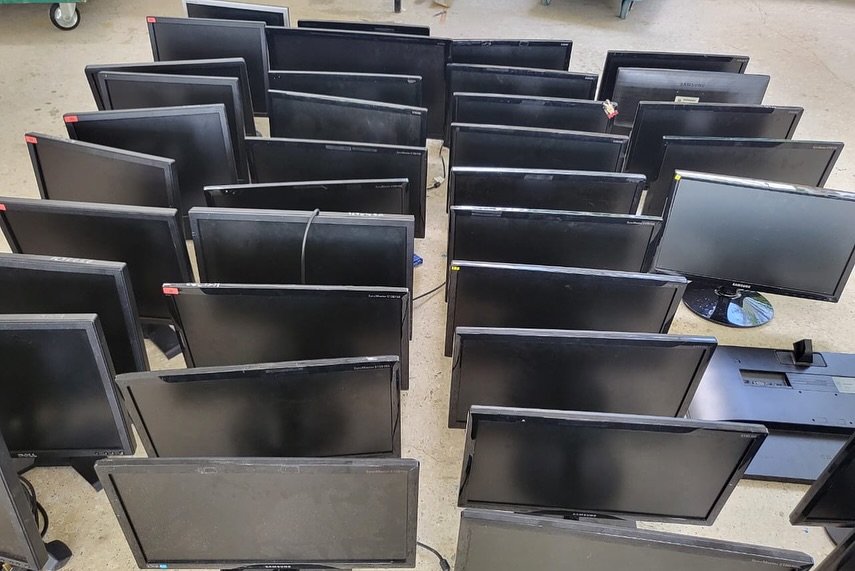
Equitable Education, School Supplies SI Penang
-
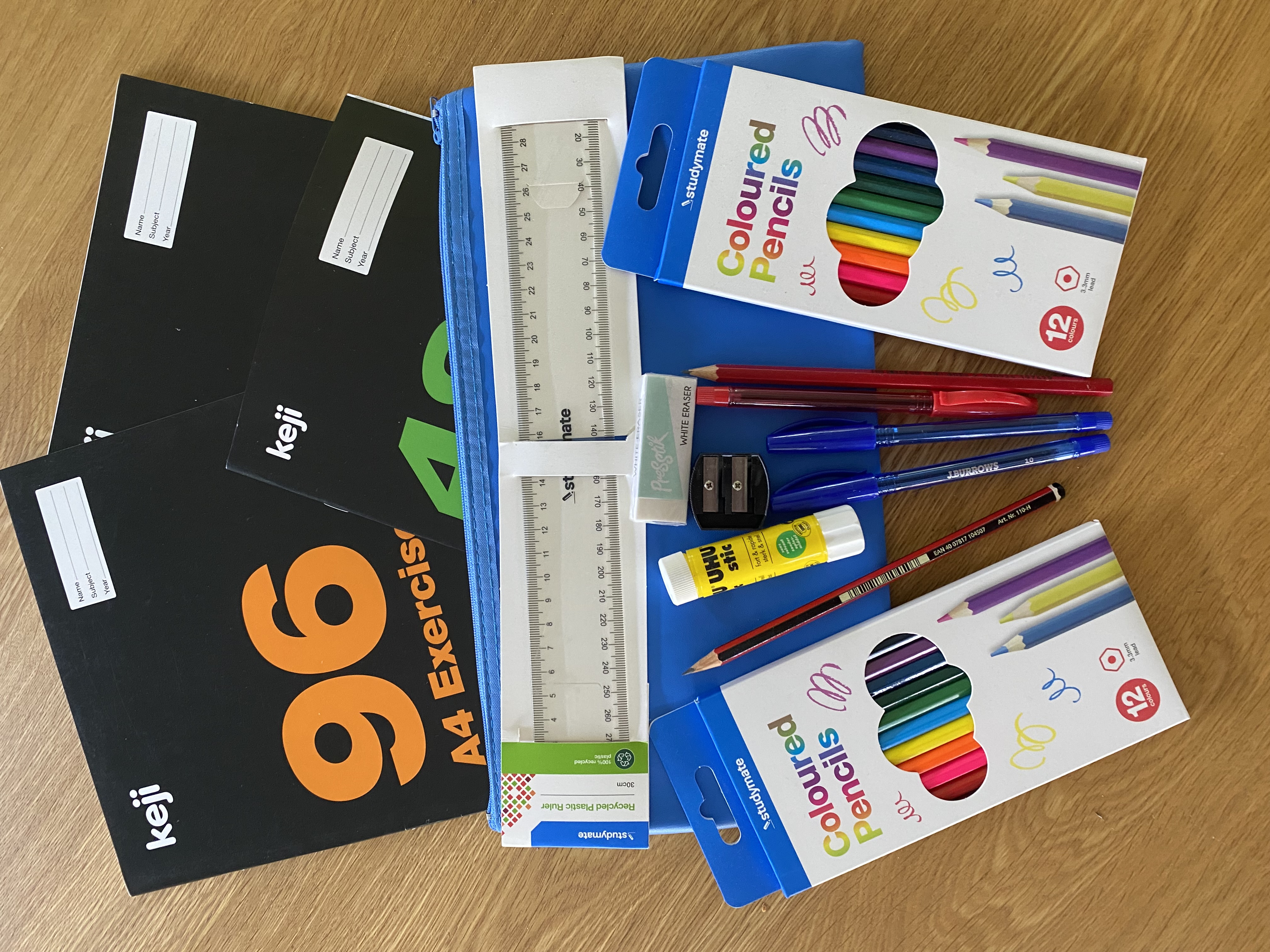
Equity in Education, School Supplies SISEAP
-
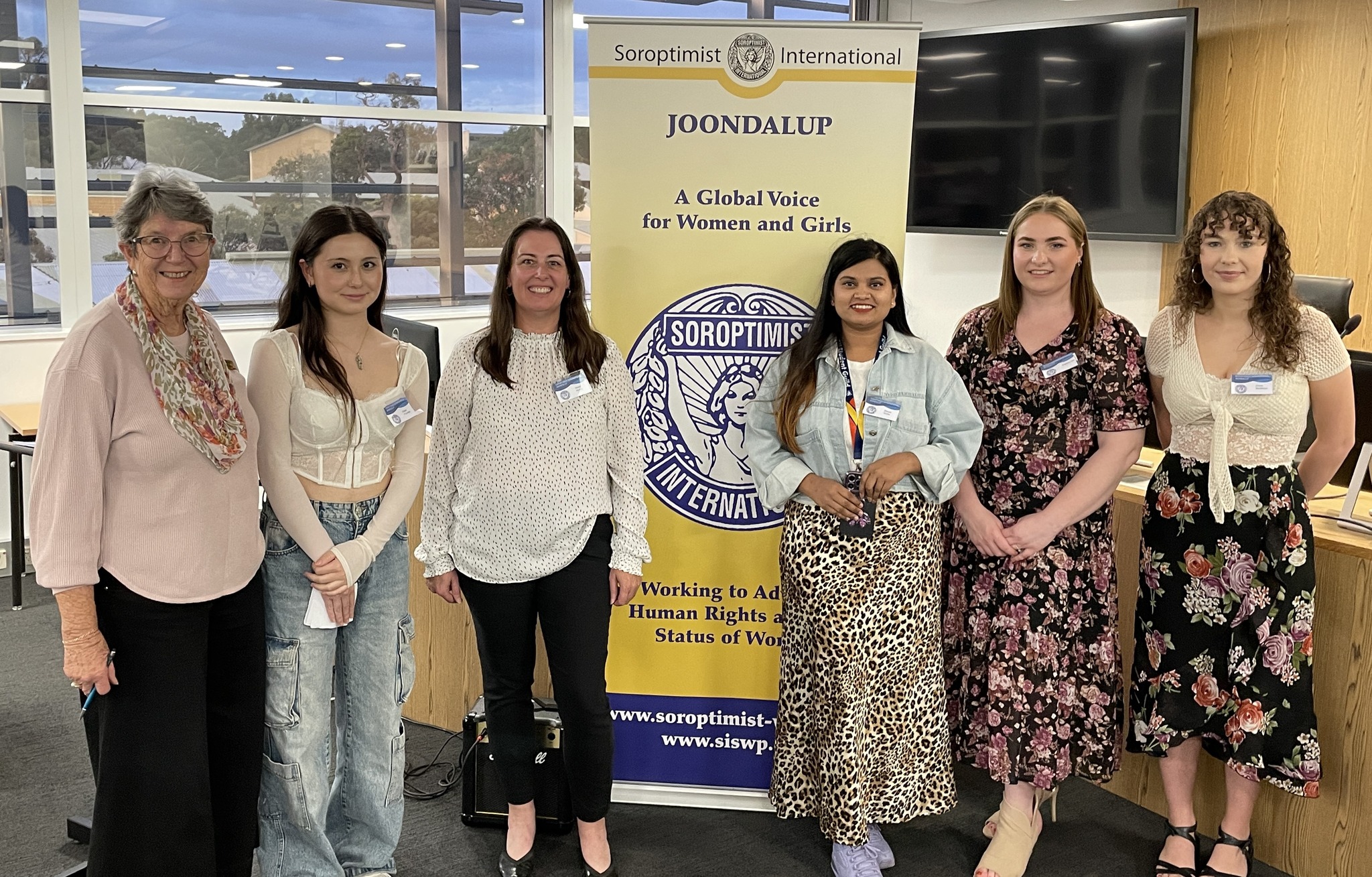
Leadership Public Speaking The Floor is Yours SI Joondalup
-
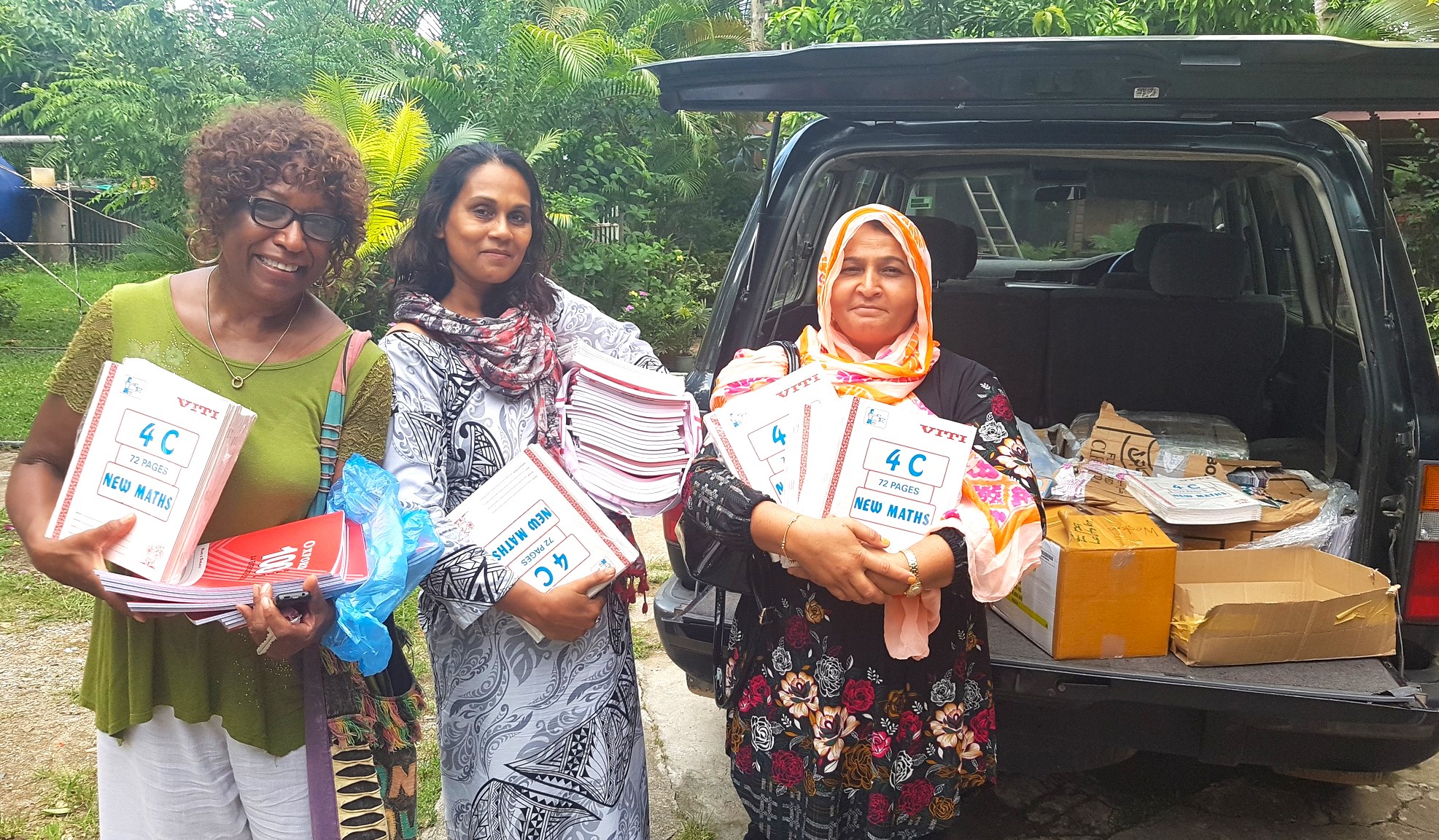
Equity in Education - FIJI
What Happens if we don't faciliate LifeLong Learning!
In Asia Pacific, the risk of modern slavery is high because those poorly educated populations are prime targets for economic exploitation, human rights violation, and international human trafficking. In 2022, 85 million people were on the move in our region. In 2024, IOM reports that where half the world’s population is in Asia Pacific, 40% of those are “migrants”. With 46% being women and 19% girls, there is a higher chance of forced labour, forced marriage, early pregnancies, sex trafficking and intensive manual labour. (UNODC 2022) There are restricted opportunities for those females to continue lifelong learning, or indeed a long life at all.
This age group (15-24 year old) is most at risk of poverty and exploitation
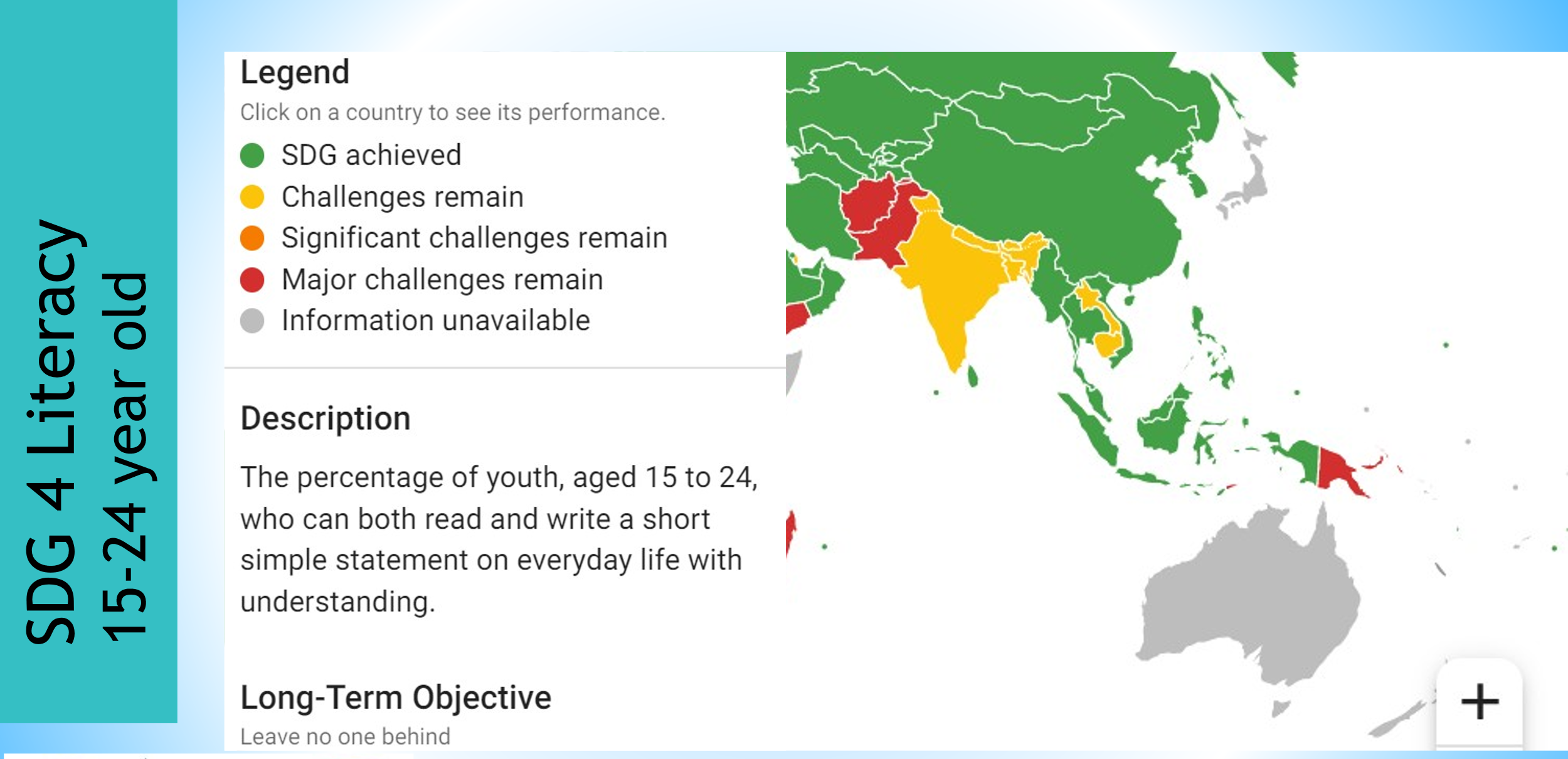
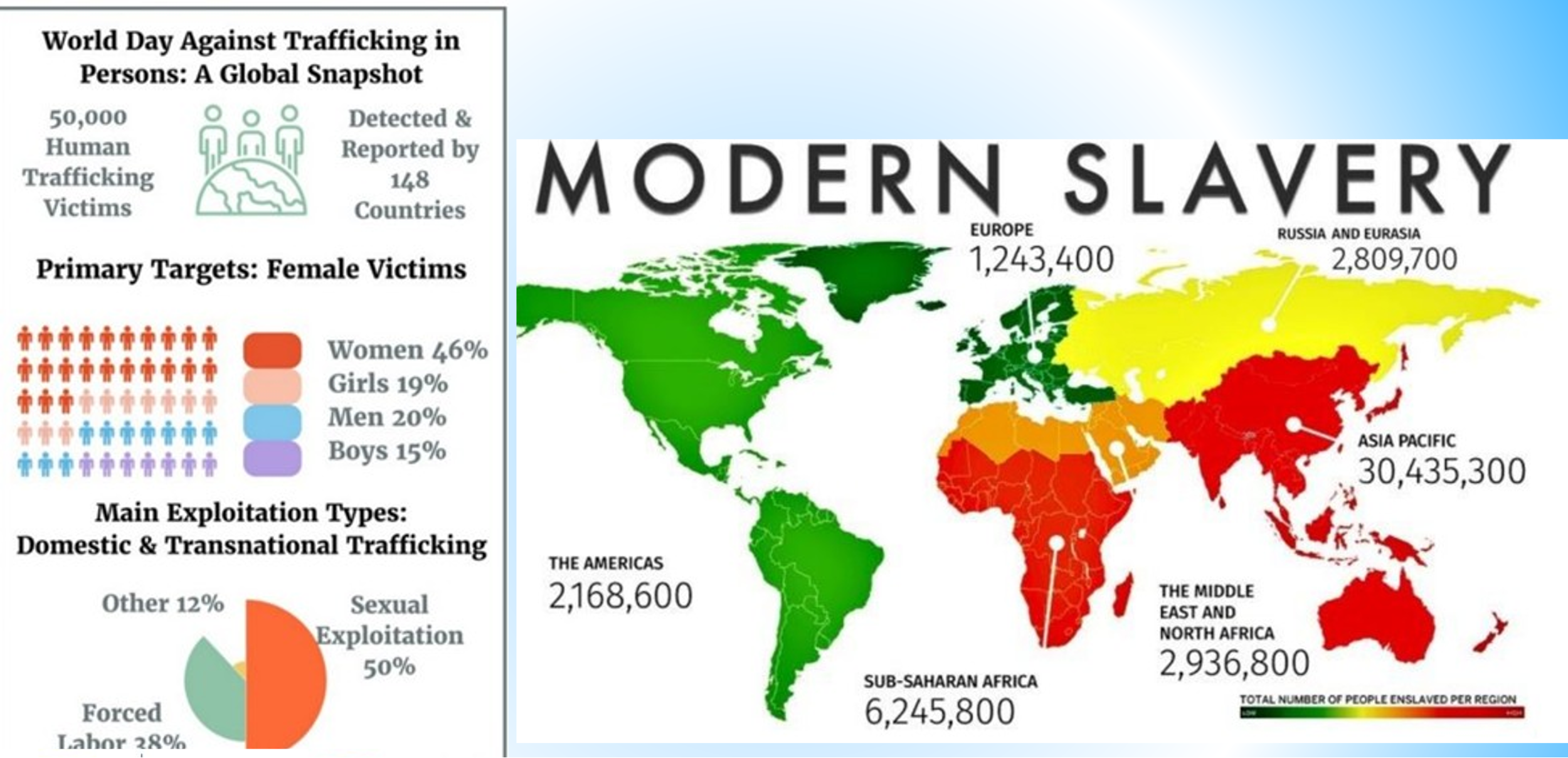
Source: UNODC and SDG 8.7 report card
Lifelong learning starts with a sound foundation to underpin continuing personal and professional development and those tools help for identifying and realising the unique potential of each person. This is the basis of a healthy future for the community, the economy, and in the pursuit of global goals.
Do you want to know more about SISEAP and the work we do. Clubs are always looking for new members, add your voice to our voices and make that change. Find out more here
